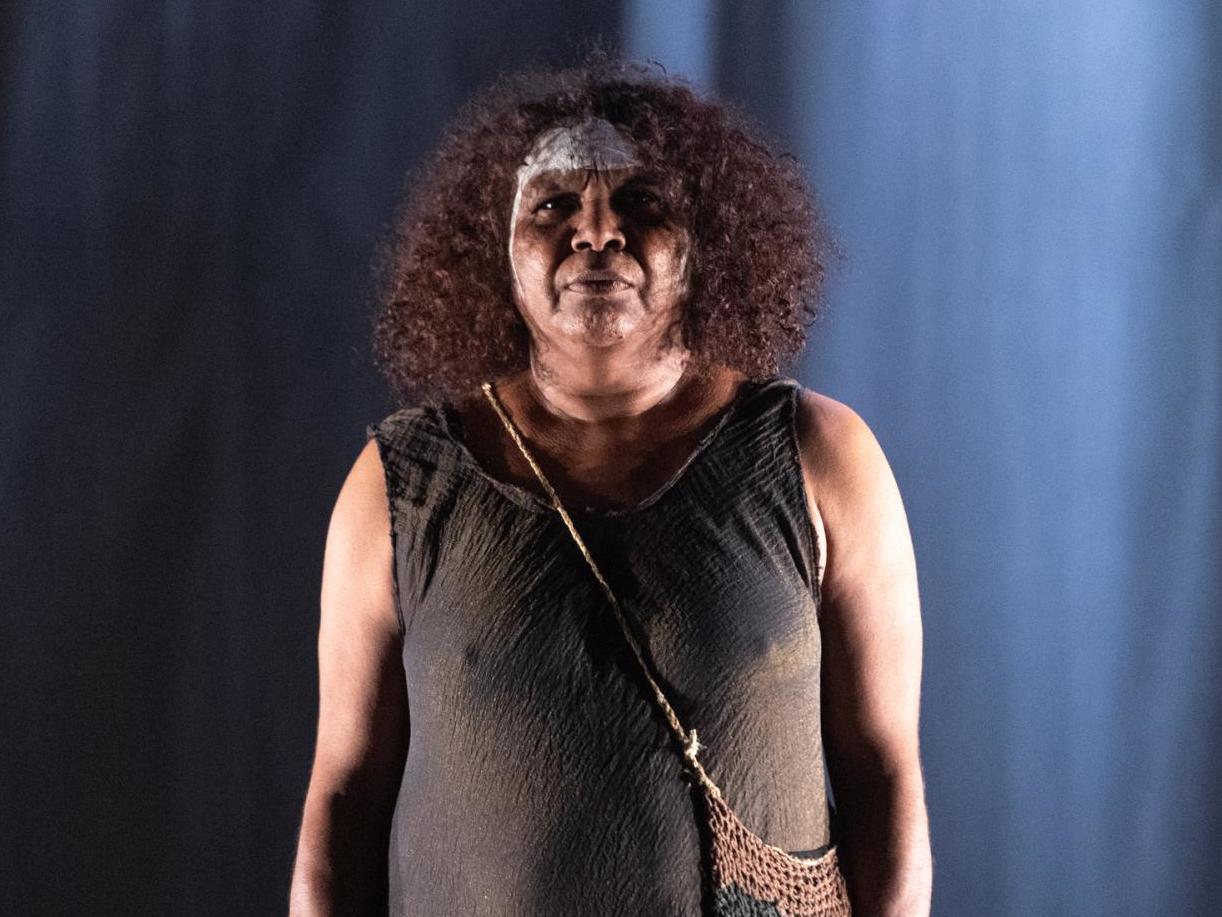Ningali Lawford-Wolf: Actor dedicated to stories about the indigenous Australian experience
A gifted and prolific performer, she racked up a long list of film and theatre credits, including an award-winning solo show

The death of indigenous Australian actor Ningali Lawford-Wolf, while on tour at the Edinburgh Festival in the critically acclaimed play The Secret River, robs film and theatre of a passionate and commanding presence.
She was involved in the development of the production, Andrew Bovell’s adaptation of a 2005 novel by Kate Grenville, a powerful work confronting Australia’s British colonial past. The play opened in Sydney in 2013, and she was the narrator in its return season and national tour in 2016, Adelaide Festival performances in 2018 and Edinburgh Festival performances in 2019.
She was born Ningali Josie Lawford in 1967 in Christmas Creek Station, a large farm within the Wangkatjungka community, a large Aboriginal community living in a vast and flat desert landscape. Her birthdate is not known. She was part of the Walmadjari tribe, also known as Tjiwaling, who are indigenous people near Fitzroy Crossing, a town in the north of Western Australia.
Her father looked after livestock in a large cattle station and her mother was a domestic worker. She said: “When I was little, my mum never worried where I was. She knew I’d get a feed and be looked after.”
In an interview for The Independent in 1995, she said she didn’t “speak English or see many white people until the age of 11”. Lawford-Wolf went to high school in Perth, the capital of Western Australia, and then to Alaska on a scholarship. Of her return from Alaska, she said: “In Fitzroy Crossing, I’m related to everyone. When I went back there after spending a year in high school in Alaska, they all came to meet me – it was like National Ningali Day.”
She trained in dance at the Aboriginal Islander Dance Theatre in Sydney and, aged 23, made her acting debut in the award-winning musical Bran Nue Dae, a musical about issues affecting Indigenous Australian, which premiered in Perth in 1990.
Four years later in 1994 she opened her one-woman show Ningali, which toured nationally and internationally between 1994 and 1996. The show won her a Fringe First Award for Best New Production at the Edinburgh Fringe Festival in 1995 and a Green Room Award for Best Actress One Woman Show in 1996.
Throughout her career, many of Lawford-Wolf’s performances would draw from her experience in relation to the country’s colonial past. She told The Independent: “Anger makes you strong, but you have to learn to use it in a certain way. I’ve become a spokesperson for my people.”
In 2000 she opened a satirical comedy, Black and Tran, a collaboration between Lawford and the comedian Hung Le, which premiered at the Melbourne Comedy Festival, about issues of racial discrimination and stereotypes surrounding Aboriginal and Vietnamese cultures.
On top of a prolific stage career – which included roles in productions of Uncle Vanya (2005), Jandamarra (2008) and Windmill Baby (2014), Lawford-Wolf also developed a significant film presence. She acted in Rabbit-Proof Fence (2002), a fictional story about an aboriginal mother and daughter escaping from a real-life internment camp for natives in Perth. She also appeared in the 2009 film adaptation of Bran Nue Dae, the 1990 stage musical that marked her acting debut.
Later work includes a part in Last Cab to Darwin (2015), a film about euthanasia that earned her an Australian Academy of Cinema and Television Arts (Aacta) award nomination for Best Actress in a Leading Role.
She is survived by five children.
Ningali Lawford-Wolf, actor, born 1967, died 11 August 2019
Join our commenting forum
Join thought-provoking conversations, follow other Independent readers and see their replies
Comments
Bookmark popover
Removed from bookmarks